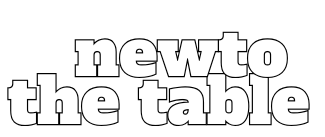Deciding between renting a house and buying one can feel like choosing between a cozy blanket and a fancy suit—both have their perks, but which one truly fits your lifestyle? Renting offers flexibility and freedom, like a carefree bird flitting from branch to branch. On the other hand, buying a home is akin to planting roots, creating a cozy nest that’s all yours, complete with questionable wallpaper choices.
In this article, we’ll dive into the pros and cons of each option, helping you navigate this pivotal decision without losing your sanity—or your sense of humor. Whether you’re a free spirit who loves to move or a homebody dreaming of a white picket fence, there’s a perfect path for you. Get ready to weigh your options and discover which choice aligns with your goals and dreams.
Table of Contents
ToggleOverview of Renting a House vs Buying
Renting a house offers flexibility and convenience. It allows individuals to move without the burden of selling a property. Monthly rent payments typically cover maintenance and repairs, providing ease of living. Renting suits those who prioritize mobility, like young professionals or individuals in transitional phases.
Buying a home grants a sense of stability and lasting investment. Owners build equity over time, which can contribute to long-term financial security. The ability to customize living spaces aligns with personal preferences, providing a feeling of ownership that renting cannot match. Homeowners often enjoy tax benefits, further enhancing the financial advantages of purchasing.
Each option carries its pros and cons. Renting provides lower upfront costs and the freedom to relocate easily but lacks long-term financial gains. Conversely, buying a property requires a significant initial investment and ongoing responsibilities yet offers the potential for appreciation in property value.
Understanding individual priorities helps clarify the decision. Those valuing stability and investment may lean toward homeownership. In contrast, individuals seeking flexibility and lower financial commitment might prefer renting. Balancing lifestyle, financial goals, and future aspirations plays a crucial role in choosing between these two housing options.
Advantages of Renting a House

Renting a house offers numerous advantages that appeal to various lifestyles and circumstances. Flexibility and lower upfront costs stand out as primary benefits for those considering this option.
Flexibility and Mobility
Renting provides unparalleled flexibility and mobility. Tenants can choose shorter lease terms, allowing for easy relocation based on personal or professional needs. This benefit is particularly valuable for young professionals or those in transitional life stages. With the ability to explore different neighborhoods or cities without long-term commitment, renters often find it easier to adapt to changes in their careers or lifestyles. They can move quickly for job opportunities or changes in family circumstances. Additionally, renters avoid the burdensome process of selling a home, making spontaneous decisions more feasible.
Lower Upfront Costs
Lower upfront costs represent another significant advantage of renting. Rental agreements typically require a security deposit and the first month’s rent, which is considerably less than the down payment for purchasing a home. Homebuyers often face expenses such as closing costs, inspections, and maintenance fees. Renters don’t need to worry about these financial obligations, allowing for more budget flexibility. This financial advantage supports other investments or savings goals, enabling individuals to allocate resources toward travel or education. Lower upfront costs contribute to making renting a budget-friendly option, especially for those entering the housing market for the first time.
Disadvantages of Renting a House
Renting a house presents several drawbacks that potential renters should consider. Understanding these disadvantages can help individuals make informed decisions about their housing options.
No Equity Build-Up
Paying rent each month means tenants do not accumulate equity in the property. Financially, this results in no long-term return on investment. Rent payments contribute to the landlord’s wealth rather than building personal assets. While renting provides short-term flexibility, it lacks the potential for future financial gains. Ownership typically brings the benefit of appreciating property values over time, unlike renting. Tenants miss out on this opportunity as they do not own their living space.
Limited Control Over Property
Renters often face restrictions on making changes to their homes. For instance, landlords typically dictate what renovations or improvements are permissible. Customizing living spaces may become challenging because any alterations usually require the landlord’s approval. Additionally, landlords may impose rules regarding noise, pet ownership, or even interior decoration. Such limitations restrict renters’ ability to create a personalized home environment. Consequently, enjoying complete freedom in how they utilize their living spaces remains out of reach for many tenants.
Advantages of Buying a House
Buying a house offers several compelling advantages. One notable benefit involves the investment aspect and equity growth.
Investment and Equity Growth
Investment opportunities significantly increase when purchasing a home. Homeownership creates a pathway for building equity, unlike renting, where payments contribute to a landlord’s assets. Over time, property values tend to rise, allowing homeowners to see a substantial return on investment. Many financial experts recommend viewing real estate as a critical component of a well-diversified investment portfolio. Additionally, homeowners can leverage their equity for future financial needs, such as home improvements or education expenses, further enhancing long-term wealth accumulation.
Personalization and Control
Control over living space enhances the appeal of homeownership. Homeowners enjoy the freedom to modify their properties according to personal preferences, whether through renovations or simple decor choices. Unlike renters, they face fewer restrictions in terms of design and customization. This autonomy fosters a sense of pride and belonging. Furthermore, the ability to create a comfortable environment tailored to individual lifestyles contributes significantly to overall satisfaction. Owning a home allows for personal expression and durability, making it easier to establish lasting roots in a community.
Disadvantages of Buying a House
Buying a house presents several drawbacks that potential homeowners must consider carefully.
Maintenance Responsibilities
Homeowners bear full responsibility for maintenance. Every repair, from leaky roofs to broken appliances, falls on their shoulders. Unlike renting, where landlords often address problems, owners must budget for ongoing upkeep. This financial obligation can strain resources, especially for unexpected issues. Seasonal maintenance, such as gutter cleaning or HVAC servicing, can add to these costs, requiring diligence and planning. Failing to conduct regular maintenance may lead to larger, costlier repairs down the line, making homeowners’ proactive involvement essential.
Financial Commitment
Purchasing a house demands significant financial commitment upfront. Buyers typically face down payments that can range from 3% to 20% of the purchase price, depending on loan types and lenders. Ongoing costs like mortgage payments, property taxes, and homeowner’s insurance also accumulate quickly. Committing to a mortgage ties financial resources for years, often limiting flexibility for other investments or lifestyle changes. Selling a house involves additional costs and potential market fluctuations, which might lead to financial loss if the property does not appreciate as expected. Understanding these financial implications ensures buyers are prepared for the long-term obligations of homeownership.
Choosing between renting and buying a home ultimately depends on individual circumstances and priorities. Those who value flexibility and lower upfront costs may find renting aligns better with their lifestyle. On the other hand, individuals seeking stability and long-term investment might lean towards homeownership.
Both options come with their unique advantages and challenges. It’s essential for potential renters and buyers to weigh these factors carefully. By understanding personal goals and financial situations, they can make informed decisions that suit their needs and aspirations.








